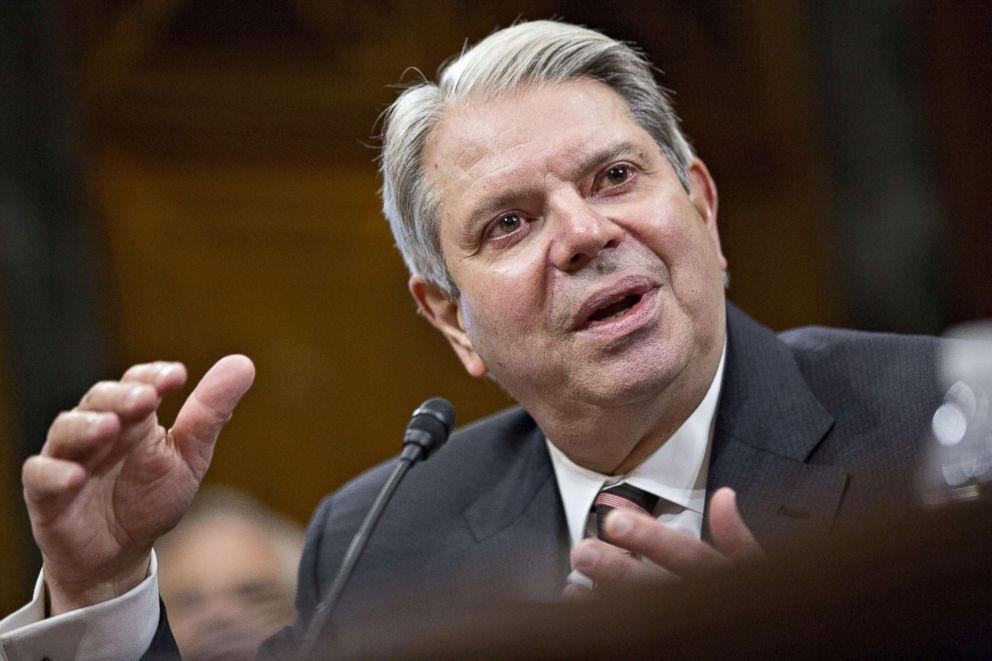Security clearances, the 2020 census, cybersecurity concerns were highlighted as 'high risk' issues in a new GAO report.
The House Oversight and Reform Committee held a hearing to discuss the findings.
Potential problems with how security clearances are issued, conducting the 2020 census and ongoing national cybersecurity concerns are just some of the issues a federal watchdog agency flagged as "high risk" in a report and the subject of a congressional hearing on Wednesday.
Members of the House Oversight and Reform Committee zeroed in on the U.S. Government Accountability Office's biennial report, which is released early in each Congress and is designed to identify “government operations with vulnerabilities to fraud, waste, abuse, and mismanagement.”
Here are some of the key takeaways.
Security Clearance Process
The government-wide personnel security clearance process faces challenges related to the “timely processing of clearances, measuring the quality of investigations, and ensuring the security of related information technology systems,” according to the GAO.
The report says the executive branch has taken some action on these issues, but still faces a backlog of 565,000 security clearance applications and has not “established measures to ensure the quality of background investigations and adjudications.”
The head of the GAO, Gene Dodaro, warned the committee of the implications of a faulty security clearance process, considering it a “national security threat.”
“Secrets can be unveiled to the public,” Dodaro said. “There’s the possibility of putting people at risk - intelligence communities and law enforcement agencies.”

The GAO's findings come on the heels of a report in the New York Times which cited four sources who claimed former chief of staff John Kelly said President Donald Trump ordered him to get a top-level security clearance for his son-in-law, Jared Kushner, approved. Trump told the Times last month he "was never involved in his [Jared’s] security" clearance. Earlier this month, in an exclusive interview with ABC News’ Abby Hunstman, Ivanka Trump said: " the president had no involvement pertaining to my clearance or my husband's clearance, zero."
ABC News has not independently confirmed the report, which cites a memo written by Kelly.
“The president has undermined the security clearance process,” Cummings said during the hearing.
The House Oversight Committee and the White House are in a standoff over viewing security documents just a day after the administration ignored a deadline to turn over information related to what the committee alleges are "security clearance abuses.”
2020 Census
The U.S. Census Bureau is included on the high-risk list for the new IT systems the bureau is trying to put in place for the 2020 census, and the challenge of controlling the associated costs.
The cost of the census has grown each decade, and the 2020 census is currently estimated to cost $15.6 billion.
The IT systems designed to aid the bureau in counting the nation’s population still contain security system weaknesses. In December 2018, the bureau identified 1,100 cyber security weaknesses. The census bureau is potentially threatened by “phishing aimed at stealing personal information,” according to the GAO.
In addition, the GAO found that the bureau faces “experience skill gaps in the office that is overseeing the $886 million contract” to integrate the IT systems for the census. As of November 2018, half of the positions in the office were not filled.
“These vacant positions add risk that the office may not be able to provide adequate oversight of contractor cost, schedule, and performance,” the report said.
National Cybersecurity
A number of cybersecurity concerns remain unchanged since GAO’s 2017 report.
“Federal agencies and other entities need to take urgent actions to implement a comprehensive cybersecurity strategy, perform effective oversight, secure federal systems, and protect cyber critical infrastructure, privacy, and sensitive data,” GAO said.
GAO acknowledged the president’s efforts to address cybersecurity concerns such as his 2017 executive order requiring federal agencies to better manage cybersecurity risks, but highlighted the lack of a coordinated strategy, especially after the elimination of the White House Cybersecurity Coordinator position in May.



